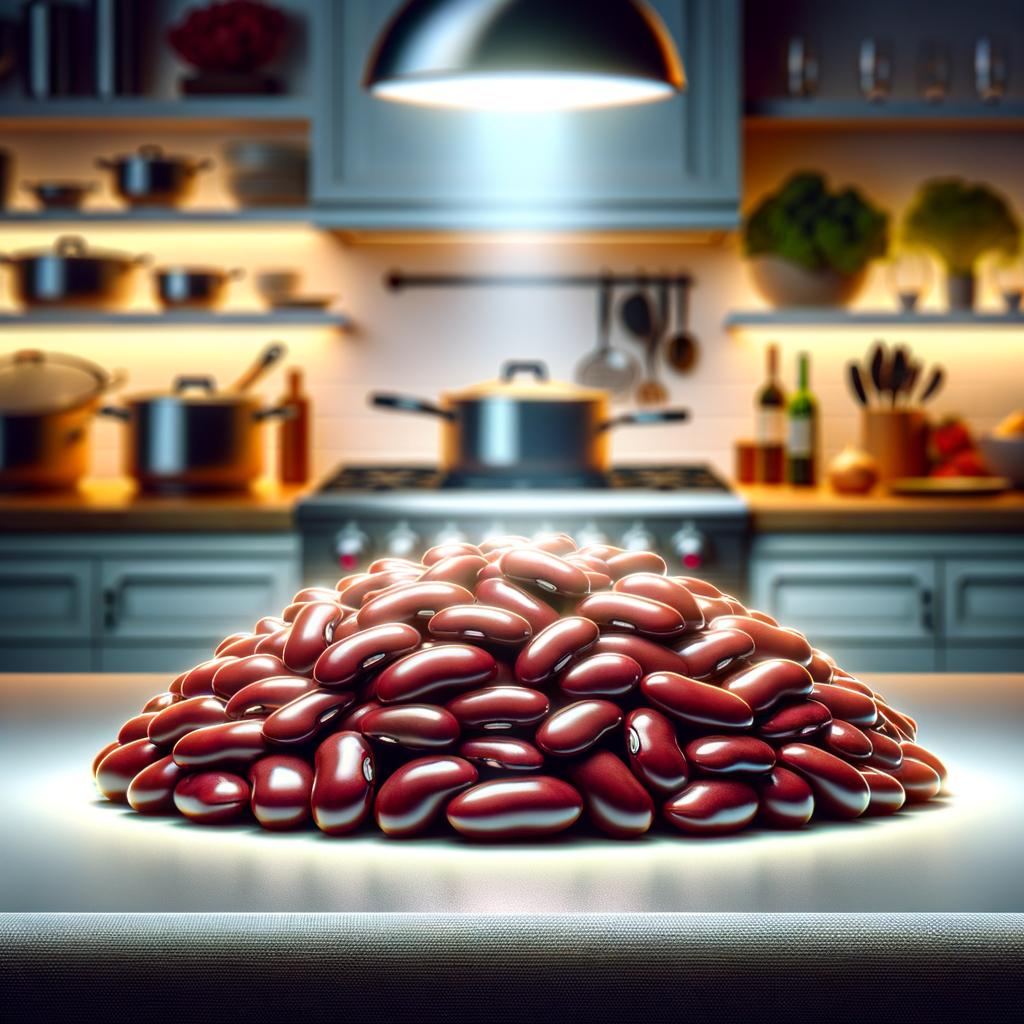Kidney Beans

Description Kidney beans, named for their characteristic shape that mirrors a human kidney, are a delightful ingredient that offers a unique blend of taste, texture, and nutrition. They come in a variety of colors, including red, white, and speckled, but are most commonly recognized in their deep, glossy red form. Their texture is smooth, yet firm, providing a satisfying bite when cooked. Their flavor is slightly sweet and nutty, offering a robust profile that can stand alone or blend seamlessly with other ingredients. Kidney beans are unique in their ability to absorb the flavors around them, making them a versatile ingredient in a multitude of dishes.
Primary Uses Kidney beans are a staple in many global cuisines, from the spicy rajma of India to the soul-warming chili con carne of the American Southwest. They are commonly used in salads, soups, stews, and casseroles, and can even be mashed into a hearty dip or spread. Beyond their culinary uses, kidney beans hold cultural significance in many societies. For example, in Japan, they are often used in sweet dishes and are considered a symbol of good luck.
History The history of kidney beans is as rich and varied as their culinary uses. They are believed to have originated in Peru over 8,000 years ago, and made their way to Europe in the 15th century via Spanish explorers. In the Americas, kidney beans were a part of the "Three Sisters" agricultural method used by Native Americans, where corn, beans, and squash were grown together. The beans would grow up the cornstalks, providing additional support, while the squash leaves would shade the soil, reducing the need for water. This method not only showcases the practicality of our ancestors, but also the deep bond between food and culture.
Nutritional Information Kidney beans are a nutritional powerhouse. They are high in protein, fiber, and complex carbohydrates, while being low in fat and calories. They are also a good source of several vitamins and minerals, including B vitamins, iron, potassium, and magnesium. Regular consumption of kidney beans can aid in digestion, help manage weight, and support heart health. Compared to other beans, kidney beans have a slightly higher protein content, making them an excellent choice for vegetarians and vegans seeking plant-based protein sources. As with all legumes, they should be properly cooked to neutralize any naturally occurring toxins and enhance their digestibility.
The humble kidney bean, with its rich history, versatile uses, and impressive nutritional profile, is truly a testament to the beauty and wonder of food.

